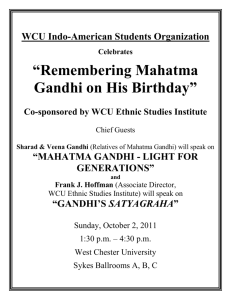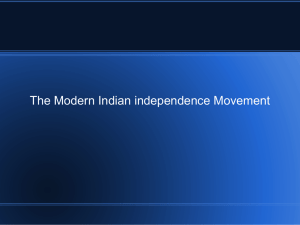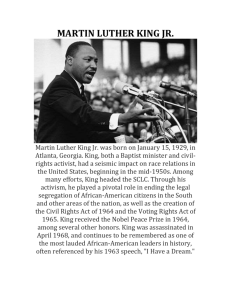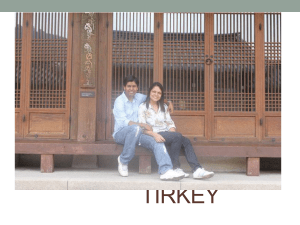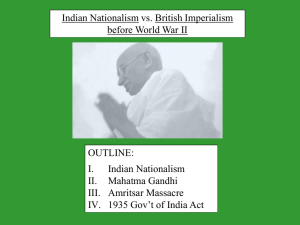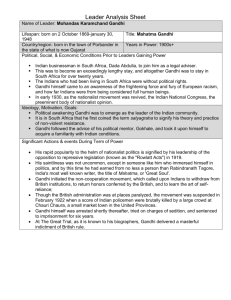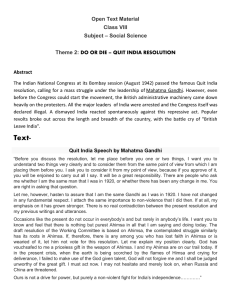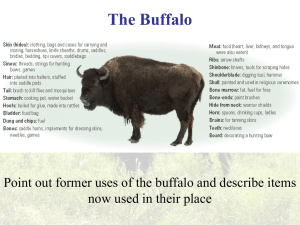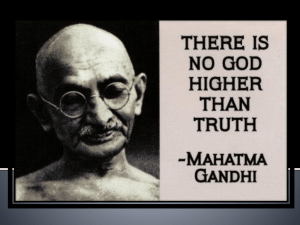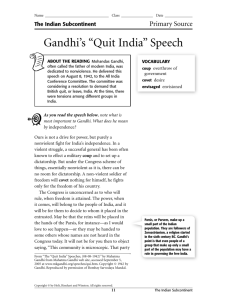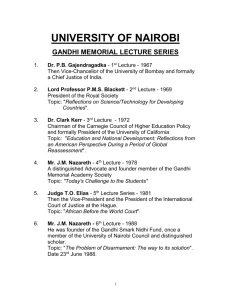Study Questions: Mahatma Gandhi's Speech to the All India
advertisement
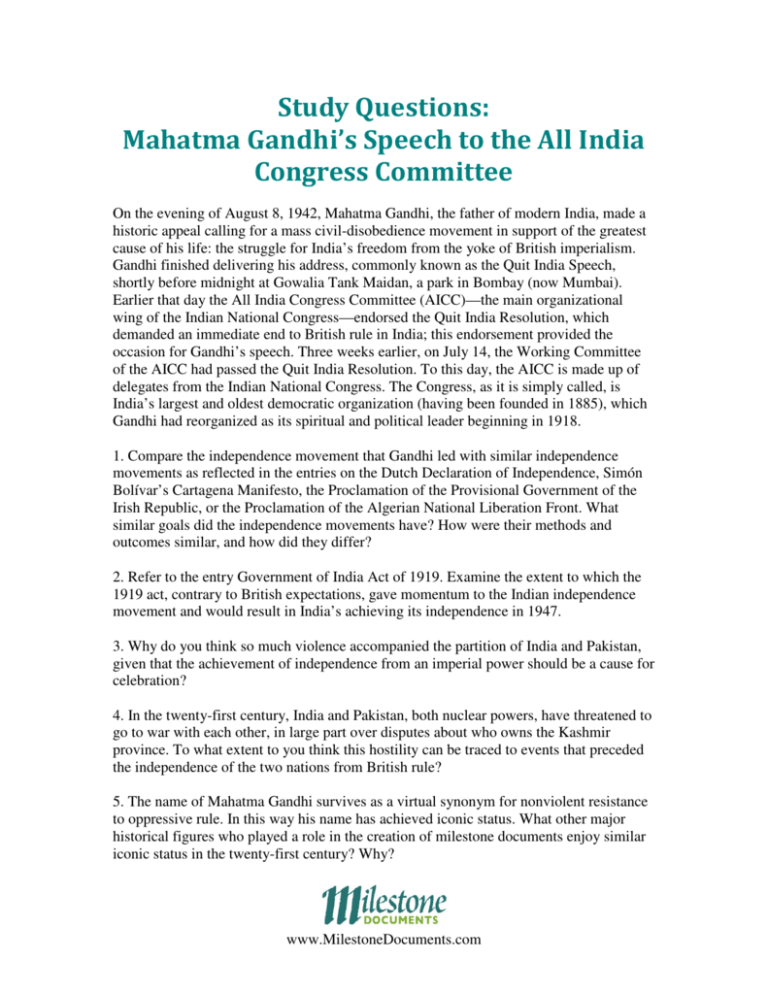
Study Questions: Mahatma Gandhi’s Speech to the All India Congress Committee On the evening of August 8, 1942, Mahatma Gandhi, the father of modern India, made a historic appeal calling for a mass civil-disobedience movement in support of the greatest cause of his life: the struggle for India’s freedom from the yoke of British imperialism. Gandhi finished delivering his address, commonly known as the Quit India Speech, shortly before midnight at Gowalia Tank Maidan, a park in Bombay (now Mumbai). Earlier that day the All India Congress Committee (AICC)—the main organizational wing of the Indian National Congress—endorsed the Quit India Resolution, which demanded an immediate end to British rule in India; this endorsement provided the occasion for Gandhi’s speech. Three weeks earlier, on July 14, the Working Committee of the AICC had passed the Quit India Resolution. To this day, the AICC is made up of delegates from the Indian National Congress. The Congress, as it is simply called, is India’s largest and oldest democratic organization (having been founded in 1885), which Gandhi had reorganized as its spiritual and political leader beginning in 1918. 1. Compare the independence movement that Gandhi led with similar independence movements as reflected in the entries on the Dutch Declaration of Independence, Simón Bolívar’s Cartagena Manifesto, the Proclamation of the Provisional Government of the Irish Republic, or the Proclamation of the Algerian National Liberation Front. What similar goals did the independence movements have? How were their methods and outcomes similar, and how did they differ? 2. Refer to the entry Government of India Act of 1919. Examine the extent to which the 1919 act, contrary to British expectations, gave momentum to the Indian independence movement and would result in India’s achieving its independence in 1947. 3. Why do you think so much violence accompanied the partition of India and Pakistan, given that the achievement of independence from an imperial power should be a cause for celebration? 4. In the twenty-first century, India and Pakistan, both nuclear powers, have threatened to go to war with each other, in large part over disputes about who owns the Kashmir province. To what extent to you think this hostility can be traced to events that preceded the independence of the two nations from British rule? 5. The name of Mahatma Gandhi survives as a virtual synonym for nonviolent resistance to oppressive rule. In this way his name has achieved iconic status. What other major historical figures who played a role in the creation of milestone documents enjoy similar iconic status in the twenty-first century? Why? www.MilestoneDocuments.com
